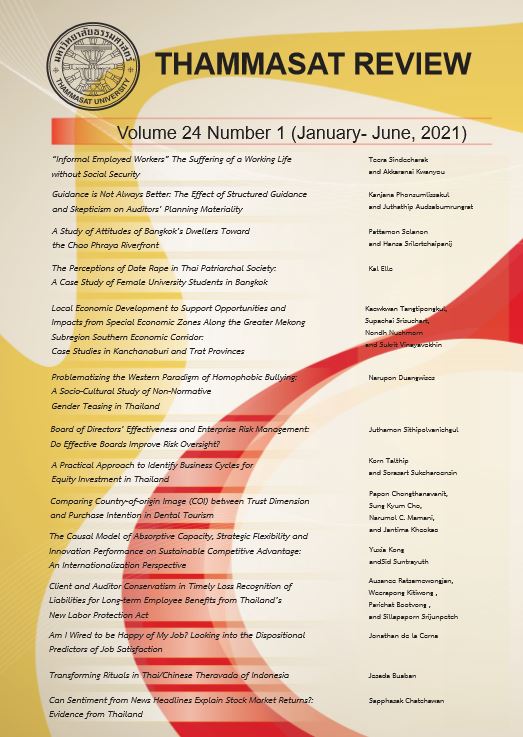Local Economic Development to Support Opportunities and Impacts from Special Economic Zones Along the Greater Mekong Subregion Southern Economic Corridor: Case Studies in Kanchanaburi and Trat Provinces
Keywords:
Local economic development, Special economic zones, GMS southern economic corridor, ThailandAbstract
The main objectives of this study are to examine the sustainable local economic development potential of Kanchanaburi and Trat provinces in the Special Economic Zones along the Greater Mekong Subregion Southern Economic Corridor by taking into account the connection between Thailand and the neighboring countries. In addition, this study evaluates the economic and social opportunities and impacts of the Special Economic Zones along the Greater Mekong Subregion Southern Economic Corridor. The methodology of this research includes local economic analysis based on the Keynesian theory of national income determination. The study finds that major limitations hindering the rapid growth of Kanchanaburi and Trat provinces in Thailand lie in the inefficient use of land, the inability to fully connect the agricultural product to the processed agricultural product supply chain, the inability to manage risk involving agricultural products’ prices and production volume, border access limitation between Trat and Koh Kong Special Economic Zones in Cambodia, and delays in the road infrastructure construction projects such as two-lane road in Dawei Special Economic Zones project in Myanmar.
Downloads
Published
How to Cite
Issue
Section
License
The opinions and ideas expressed in all submissions published in Thammasat Review are solely that of the author(s) and do not necessarily reflect that of the editors or the editorial board.
The copyright of all articles including all written content and illustrations belong to Thammasat Review. Any individuals or organisation wishing to publish, reproduce and distribute a particular manuscript must seek permission from the journal first.








